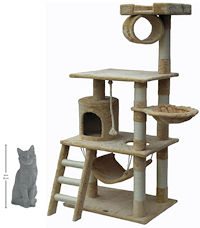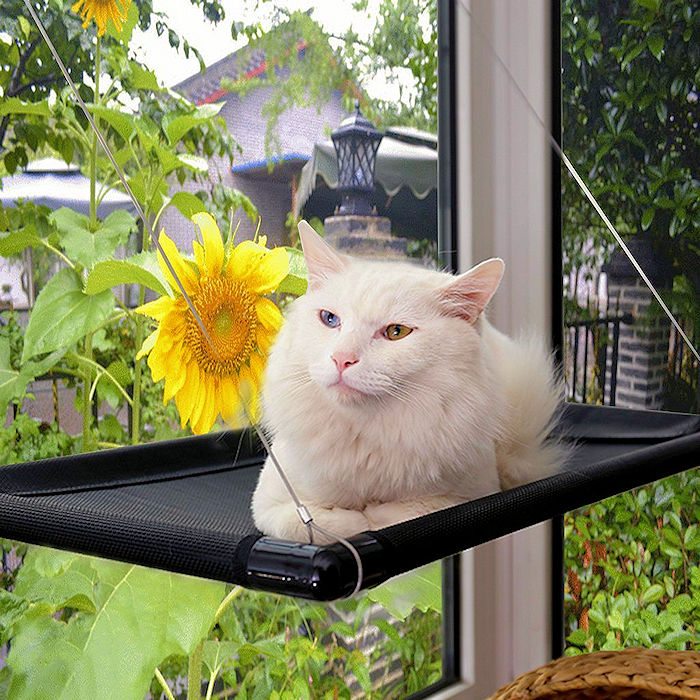 All cats are different. Some may never get sick. Some cats unfortunately will and in some cases, they will inherit their diseases. It does not matter what type of cat breed you own, all cats are not immune to infections and diseases. Here is a list of the most common cat health issues your cat may incur.
All cats are different. Some may never get sick. Some cats unfortunately will and in some cases, they will inherit their diseases. It does not matter what type of cat breed you own, all cats are not immune to infections and diseases. Here is a list of the most common cat health issues your cat may incur.
Fleas:
Here we have the most common of all cat health issues. Fleas can easily take over your cat and home if you let your cat run free outside. If you do let your cat roam free outside, your best bet would be to get a flea collar. If the cat has picked up fleas there is a number of flea products to get at your local pet store. Ignoring fleas can lead to other diseases such as anemia, skin infections, allergies and tapeworms.
Parasitic Worms:
An occasional problem seen in cats in is parasitic worms. There are several types of worms cats may develop and reside in the intestines. Roundworms, tapeworms and hookworms that infect cats and are the most common. If your cat seems to be lethargic, not gaining weight and scratching from fleas, you should check the cats stool for signs of small white particles. If you see this or if the cat exhibits this type of behavior, he/she should be taken to the vet and checked for worms. Worms can be controlled with the proper medicine. If untreated, worms could be fatal.
Cats are constantly cleaning and grooming themselves. They lick their ears, legs and entire body every day. While cleaning themselves, hair from their body are swallowed. Over time the loose hairs will develop into a ball. This is known as a hairball. The hairball can sometimes get stuck in the cats digestive system. Cats will start to cough and in most cases, regurgitate the hairball. However, if cats cannot pass the hairball through its stool, it can get lodged in its intestine causing a painful blockage. If this blockage in not treated, usually surgically removed, serious and fatal damage can occur. If you notice your cat not eating properly, constipated and not grooming themselves as often as they do, contact your vet immediately.
 Hairballs:
Hairballs:
Hairballs can be prevented by grooming your cat several times a week with a brush to dislodge loose or dead hair. There is also cat food available to control hairballs. The food is generally high in fiber. You must gradually switch the food and increase the high fiber food daily until the cat is eating all of it.
One of the most common infection in cats in the urinary tract infection. Male cats that have been nurtured seem to have this problem more often than cats that have not. Female cats also have this problem but not as often. Cats will stop going in their litter box and in some cases, start to meow very loudly as to get the owners attention. Strong smelling urine is another symptom seen in this infection. This infection can be very painful if not treated over time. If your cats displays any of these symptoms, call the vet immediately and see if you can get the cat in right away. Medicine can be taken and the vet will also give you some suggestions on how to keep your cat healthy in this area.

“Cats, no less liquid than their shadows,
Offer no angles to the wind.
They slip, diminished, neat, through loopholes
Less than themselves.”
– A.S.J. Tessimond
Feline Leukemia:
Feline leukemia was known as a cancer in the past. It is known as FeLV and is in fact a retrovirus. The retrovirus is made from Ribonucleic acid. It is passed between cats through saliva and or nasal secretions, litter box and even biting . If the cats immune system cannot defeat the disease, it is usually deadly.
Although there is really no way to protect your cat from getting this disease, it is best to keep your cat indoors and away from other stray cats. Cats should be taken to their vets regularly and given their vaccinations that will lead to a normal and healthy life.
Remember, your cat is a member of your family. You want to take care of them like they were your own child. Cats that are well cared for can live a long time and will bring years of enjoyment to you and your family!








Leave a Reply
You must be logged in to post a comment.